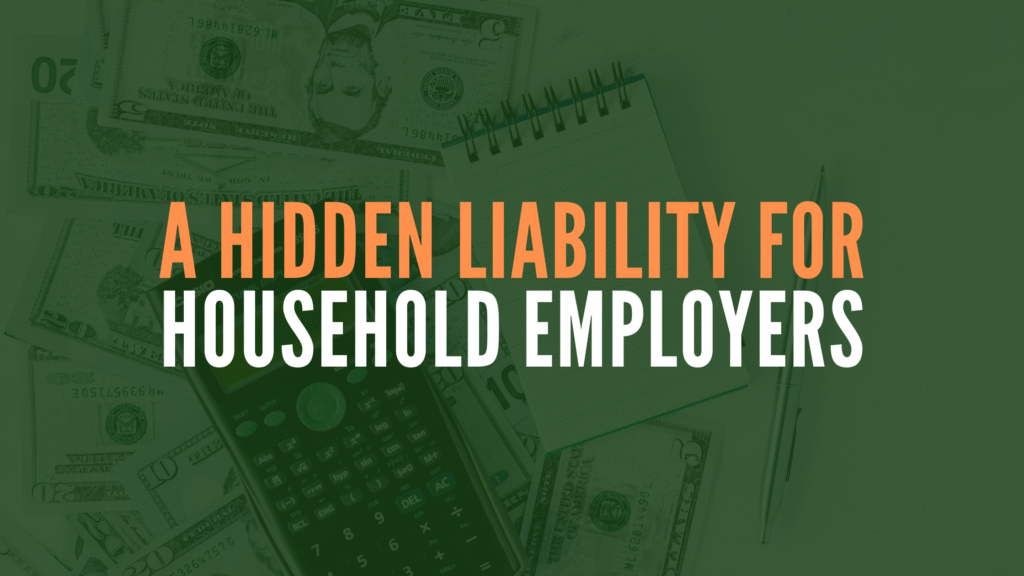The tax code has a way of surfacing in places you might not expect especially when it comes to hiring help around the house. One commonly overlooked area is the nanny tax, which can apply even in temporary or informal household arrangements.
If you’ve hired a nanny, caregiver, housekeeper, or similar household worker even on a part-time or pandemic-driven basis, you could be responsible for paying and reporting employment taxes under IRS rules.
What Is the Nanny Tax?
The term “nanny tax” refers to a set of federal employment tax obligations that apply when you hire a household employee. Specifically, if you pay a household worker $2,300 or more in a calendar year (for 2021), you are responsible for:
- Withholding the employee’s share of Social Security and Medicare taxes (FICA)
- Paying the employer’s share of FICA taxes
- Possibly paying federal and state unemployment taxes (FUTA and SUTA)
These rules apply regardless of whether the worker is full-time, part-time, live-in, or was hired through personal connections rather than an agency.
Who Counts as a Household Employee?
According to IRS Publication 926, a household employee is someone who performs services in or around your private home and whose work you control, both in terms of what’s done and how it’s done. Common examples include:
- Nannies
- Babysitters
- Elder caregivers
- Housekeepers
- Private nurses
- Personal chefs
- Household assistants
It does not matter if you found the person through an agency, friend, or online platform, what matters is how the work is performed and how much control you have over it.
Who Is Not a Household Employee?
You do not need to pay the nanny tax if you hire independent contractors or service providers who:
- Run their own business
- Set their own schedules
- Provide tools or supplies
- Offer services to the general public
This includes landscapers, pool cleaners, pest control services, and housecleaning companies that operate independently.
Also, if you hire help through an agency and the agency pays and supervises the worker, then the worker is not considered your employee.
What Triggers the Tax?
You become liable for nanny tax compliance if you pay any household worker $2,300 or more in a calendar year (for 2021). Once that threshold is crossed, you’re expected to:
- Obtain an Employer Identification Number (EIN)
- Withhold and pay FICA taxes
- Issue a Form W-2 to the worker at year-end
- File Schedule H with your personal tax return (Form 1040)
Many families made informal or emergency hiring decisions during the COVID-19 pandemic bringing caregivers into the home for children or elderly relatives. What may have started as a short-term solution could now have long-term tax implications.
If you’re in this situation, proactive compliance is essential. The IRS can impose penalties for failing to properly report and remit employment taxes, and the longer the delay, the higher the potential cost.
The nanny tax rules are complex and the compliance process is time-consuming, especially for first-time household employers. At BASC Expertise, we guide clients through the process from determining whether they have a household employee, to calculating taxes, filing forms, and avoiding costly mistakes.
Unsure whether your household helper qualifies as an employee?
Let BASC Expertise help you determine your obligations and keep your tax record clean.
📞 (480) 355-1398 | 🌐 bascexpertise.com/contact

